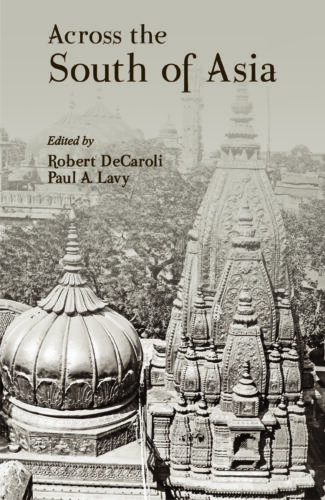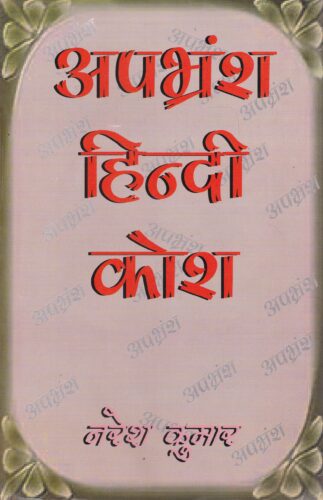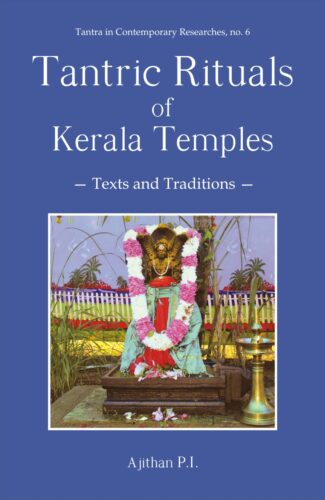-


Fawaid al-Fuad...
Fawaid al-Fuad
Spiritual and Literary Discourses of Shaikh Nizammuddin Awliya by: Ziya-ul-Hasan FaruqiThe book containing spiritual and literary discourses of Sufi Shaikh Nizamuddin Awliya focuses on values that can create a true human being. It provides information on many Sufi saints and the ulama.
₹810.00
ISBN: 9788124600429
Year Of Publication: 2014
Edition: 2nd
Pages : ix, 495
Bibliographic Details : Glossary; Indices
Language : English
Binding : Hardcover
Publisher: D.K. Printworld Pvt. Ltd.
Size: 23 cm.
Weight: 750
Fawaid al-Fuad is a monumental work of spiritual and literary discourses of Shaikh Nizamuddin Awliya who lived in medieval India. The book is a didactic classic in the form of recorded conversations. Devoid of supernatural elements, it provides useful information about a large number of Shufi saints and ulama. A living testimony to the accord between the Shariah and Tariqah, therein he spoke on the necessity of practising values that could transform man into a true human being, full of love, tolerance, forgiveness, patience, forbearance, sincerity in devotion, adherence to truth and generosity. Sufism or Islamic spiritualism that flourished in India with the advent of the Turkish rule in the 13th century forms the backdrop of this work. The moral teachings of his spiritual mentors, dwelt at length, in various majlises, constitute the bed-rock of this treatise which has great literary distinction. Written in fluent Persian prose style, it is embellished with apt verses to elucidate the points of discussion. The Shufi way of life and the teachings of the Chishtiyah order have been vindicated as a sharp contrast to the material prosperity, territorial conquest and the lust for power in the contemporary world. The compiler Amir Hasan Ala sijzi a great scholar of Persian language, has done a yeomans service in giving a definite shape to this monumental work. The Shaikhs didactic intention and spiritual flavour have been well-preserved through the compilers directness of style. Fawaid al-Fuad rendered into English from the original Persian text based on an ably edited edition of the book represents a serious attempt to understand the nuances of the mystic mind of a great shufi saint of the sub-continent. This academic venture of Prof. Faruqi will be of great use to lay readers as well as the scholars of Islamic mysticism.
Preface
Introduction
The Madrasah Education
Persian as the Language of Culture
Shufi Orders
Shufi Orders in India
Early Chisti Shaikhs
Shaikh Fariduddin
Shaikh Nizamuddin Awliya
Shufi Shaikhs and the Ulama
The Shariah and Tariqah
The Success of the Chishtiyah in India, Reason for
Basic Teachings of the Chishtiyah
Sama (Audition)
Sama and Shaikh Nizamuddin
Karamah (Miraculous Deeds)
Karamah, Discourged by Shaikh Nizamuddin
Shaikh Nizamuddin Awliya
Education at Badaun — Leaves for Delhi — Visit to Ajodhan — Studies at Baba Farids Feet — Desires to Become a Qadi — Visits to Ajodhan — Settles Finally at Ghayathpur (Delhi) — Difficult Days at Ghayathpur — Circumstances Changed — Baranis Account of His Impact — Rulers and the Ruling Class, Relations With — Sultan Qutbuddin Mubarak and the Shaikh — Sultan Ghayathuddin Tughlaq and the Shaikh — The Shaikhs Routine and Illness — Shaikh Departure from this World
Amir Hasan Ala Sijzi Dehlawi
Prince Muhammad, Khusrau and Hasan — Hasan at Delhi — Hasan at Deogir (Daulatabad) — A Man of Good Disposition — A Poet of Merits
The Original Work
The Manuscript Approved by the Shaikh — Authenticity of the Discourses — Malfuz-Writing — A Literary Genre — The Shari ah and the Tariqah — Shufi Values Meant for Realisation in Life — A Literary Work of Distinction — The Present Translation
Translation of Fawaid al-Fuad
Part I
Majlis 1 Majlis 2 Majlis 3 Majlis 4 Majlis 5 Majlis 6 Majlis 7 Majlis 8 Majlis 9 Majlis 10 Majlis 11 Majlis 12 Majlis 13 Majlis 14 Majlis 15 Majlis 16 Majlis 17 Majlis 18 Majlis 19 Majlis 20 Majlis 21 Majlis 22 Majlis 23 Majlis 24 Majlis 25 Majlis 26 Majlis 27 Majlis 28 Majlis 29 Majlis 30 Majlis 31 Majlis 32 Majlis 33 Majlis 34
Part II
Majlis 1 Majlis 2 Majlis 3 Majlis 4 Majlis 5 Majlis 6 Majlis 7 Majlis 8 Majlis 9 Majlis 10 Majlis 11 Majlis 12 Majlis 13 Majlis 14 Majlis 15 Majlis 16 Majlis 17 Majlis 18 Majlis 19 Majlis 20 Majlis 21 Majlis 22 Majlis 23 Majlis 24 Majlis 25 Majlis 26 Majlis 27 Majlis 28 Majlis 29 Majlis 30 Majlis 31 Majlis 32 Majlis 33 Majlis 34 Majlis 35 Majlis 36 Majlis 37 Majlis 38
Part III
Majlis 1 Majlis 2 Majlis 3 Majlis 4 Majlis 5 Majlis 6 Majlis 7 Majlis 8 Majlis 9 Majlis 10 Majlis 11 Majlis 12 Majlis 13 Majlis 14 Majlis 15 Majlis 16 Majlis 17
Part IV
Majlis 1 Majlis 2 Majlis 3 Majlis 4 Majlis 5 Majlis 6 Majlis 7 Majlis 8 Majlis 9 Majlis 10 Majlis 11 Majlis 12 Majlis 13 Majlis 14 Majlis 15 Majlis 16 Majlis 17 Majlis 18 Majlis 19 Majlis 20 Majlis 21 Majlis 22 Majlis 23 Majlis 24 Majlis 25 Majlis 26 Majlis 27 Majlis 28 Majlis 29 Majlis 30 Majlis 31 Majlis 32 Majlis 33 Majlis 34 Majlis 35 Majlis 36 Majlis 37 Majlis 38 Majlis 39 Majlis 40 Majlis 41 Majlis 42 Majlis 43 Majlis 44 Majlis 45 Majlis 46 Majlis 47 Majlis 48 Majlis 49 Majlis 50 Majlis 51 Majlis 52 Majlis 53 Majlis 54 Majlis 55 Majlis 56 Majlis 57 Majlis 58 Majlis 59 Majlis 60 Majlis 61 Majlis 62 Majlis 63 Majlis 64 Majlis 65 Majlis 66 Majlis 67
Part V
Majlis 1 Majlis 2 Majlis 3 Majlis 4 Majlis 5 Majlis 6 Majlis 7 Majlis 8 Majlis 9 Majlis 10 Majlis 11 Majlis 12 Majlis 13 Majlis 14 Majlis 15 Majlis 16 Majlis 17 Majlis 18 Majlis 19 Majlis 20 Majlis 21 Majlis 22 Majlis 23 Majlis 24 Majlis 25 Majlis 26 Majlis 27 Majlis 28 Majlis 29 Majlis 30 Majlis 31 Majlis 32
Glossary
Index of Books
Index of Names and Places
Index of Subjects






